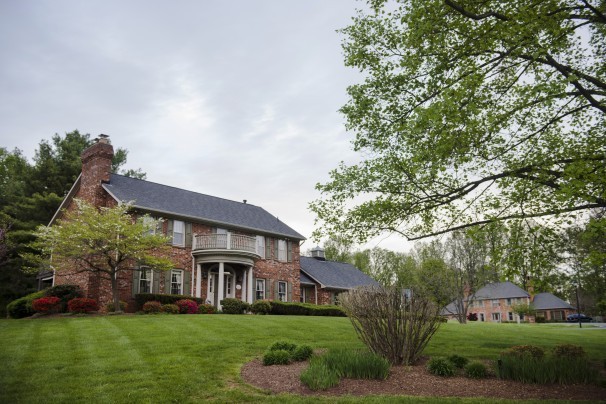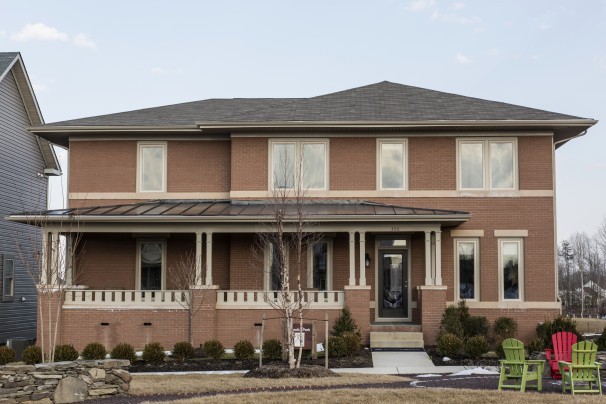Reader’s plan to sell investment property has major tax implications The Washington Post
Post on: 30 Май, 2015 No Comment

By Harvey S. Jacobs April 9, 2014
I am selling a house in Pennsylvania that I have rented out as an investment for the past 10 years. I want to take the money I make on this sale (paid $400,000, selling for $500,000, made no capital improvements and not paying any sales commissions or closing costs, so net cash profit should be about $100,000) and pay down my mortgage on my Maryland principal residence. What are the tax implications?
Congratulations on successfully investing in a rental property. When you sell your rental property, you will incur federal and state capital gains taxes. Capital gain is the difference between your selling price and your adjusted tax basis. The IRS classifies capital gains as either short- or long-term. Gain on the sale of property held for one year or less is considered short term and is taxed at your ordinary income tax rate. Gain on sale of property held for more than one year is classified as a long-term capital gain and is taxed at rates ranging from 0 percent to 20 percent. Most homeowners will pay at the 15 percent rate.
Although you state that your net cash profit is $100,000, your taxable long-term capital gain is $209,080. Assuming you are in the 15 percent capital gains tax bracket, your capital gains tax liability would be $31,362. This number is calculated by starting with your net sales price of $500,000 and subtracting your adjusted tax basis of $290,920 (which is original cost, $400,000, minus accumulated depreciation, $109,080). The result is your $209,080 capital gain. At the 15 percent tax rate, your long-term capital gain tax liability is $31,362. After federal capital gains tax, you are left with only $68,638 to prepay your existing mortgage. But it gets worse.
IRS regulations generally require that you depreciate your rental property over 27.5 years, or 3.636 percent per year. To calculate your depreciation deductions, we assume that your $400,000 purchase price was allocated between the land valued at $100,000 and the improvements valued at $300,000. You stated you made no other capital improvements. So, you were able to take $10,908 annual depreciation expense deductions on your tax return (3.636 percent X $300,000) for each full year you rented it. This non-cash tax deduction reduced your taxes on an annual basis. But now that you are selling, this non-cash tax deduction must be paid back in part, as depreciation recapture tax.
Because land does not wear out, the IRS does not permit you to depreciate the purchase price attributable to the land. When you apply the 3.636 percent annually against your $300,000 depreciable basis for your 10-year holding period, you have taken $109,080 in accumulated depreciation deductions. That amount will now be “recaptured” and taxed at the 25 percent tax rate. So, in addition to your capital gains tax, you will incur $27,270 in depreciation recapture tax.
You may also incur the new Net Investment Income Tax. That tax imposes an additional 3.8 percent tax on your net investment income above certain thresholds.
Because this is investment property you are not eligible to use the $250,000/$500,000 capital gains exclusion available when you sell your primary residence. Internal Revenue Service publication 544, available online at www.irs.gov, contains detailed instructions for calculating capital gains and depreciation recapture for residential rental property.

Prepaying your principal residence mortgage will save you interest over the life of the loan. Making a partial mortgage prepayment will not reduce your monthly payment, however. Your existing monthly payment amount will remain the same. Your principal prepayment only causes the mortgage to be paid off sooner. Before making a large prepayment, you should contact your lender in writing to notify it that you are making a prepayment and to confirm that there are no prepayment penalties. You should also consult a financial planner or certified public accountant to evaluate whether paying down your mortgage makes economic sense.
Because your plan to sell investment property and use the proceeds to reduce the mortgage on your principal residence results in significant tax liabilities with no real tax advantages, you might consider using a “1031 like-kind exchange” to sell your Pennsylvania property and invest your profits in another investment property near your Maryland residence.
A 1031 like-kind exchange requires you to identify your replacement property within 45 days, and to close on your replacement property within 180 days after your Pennsylvania property settles. A 1031 like-kind exchange allows you to defer liability for all federal capital gains and depreciation recapture taxes.
You can sell your Pennsylvania property and pay no federal income taxes on that gain as long as you reinvest your entire sales proceeds in a new investment property with a value equal to or greater than your Pennsylvania property.
Harvey S. Jacobs is a real estate lawyer with Jacobs & Associates Attorneys At Law in Rockville. He is an active real estate investor, developer, landlord, settlement attorney, lender and Realtor. This column is not legal advice and should not be acted upon without obtaining your own legal counsel. Contact Harvey at (301) 300-6252 Jacobs@Jacobs-Associates.com or Ask@thehouselawyer.com.














